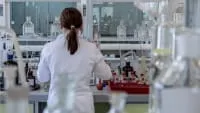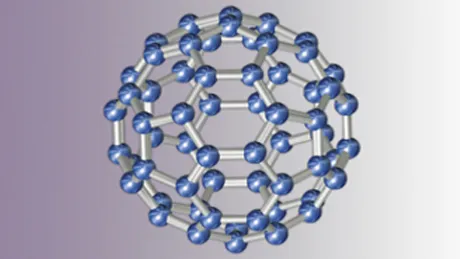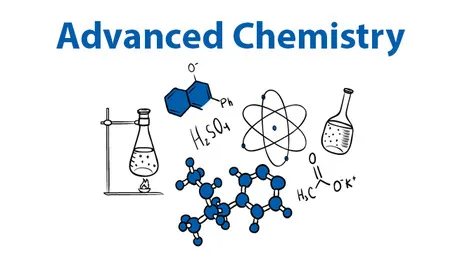
Basic Concept of Chemistry Part 3 
This course covers the basic concepts of chemistry part 3, focusing on chemical bonding. It covers topics such as finding structures, electrical conductivity of ionic compounds, covalent bonding, macro covalent molecules, macro molecules of diamond, and properties of simple covalent molecules. It is designed to help students understand the fundamentals of chemical bonding and its applications. ▼
ADVERTISEMENT
Course Feature
![]() Cost:
Cost:
Free
![]() Provider:
Provider:
Udemy
![]() Certificate:
Certificate:
No Information
![]() Language:
Language:
English
Course Overview
❗The content presented here is sourced directly from Udemy platform. For comprehensive course details, including enrollment information, simply click on the 'Go to class' link on our website.
Updated in [May 25th, 2023]
This course, Basic Concept of Chemistry Part 3, provides an overview of chemical bonding. Students will learn about the electrical conductivity of ionic compounds, covalent bonding, macro covalent molecules, macro molecules of diamond, and the properties of simple covalent molecules. Through this course, students will gain a better understanding of the fundamentals of chemical bonding.
[Applications]
After completing this course, students can apply the concepts of chemical bonding to a variety of real-world scenarios. For example, they can use the knowledge of electrical conductivity of ionic compounds to design electrical circuits. They can also use the knowledge of covalent bonding to understand the properties of simple covalent molecules and macro molecules of diamond. Additionally, they can use the knowledge of finding structures to identify the structure of a given compound.
[Career Paths]
1. Chemical Engineer: Chemical engineers use their knowledge of chemistry to develop new products and processes. They design and develop new materials, processes, and systems for the production of chemicals, fuels, and other products. They also work to improve existing processes and products. As the demand for new and improved products and processes increases, the need for chemical engineers is expected to grow.
2. Pharmaceutical Scientist: Pharmaceutical scientists use their knowledge of chemistry to develop new drugs and medicines. They research and develop new drugs, analyze the effects of existing drugs, and develop new methods of drug delivery. As the demand for new and improved drugs increases, the need for pharmaceutical scientists is expected to grow.
3. Environmental Scientist: Environmental scientists use their knowledge of chemistry to study the effects of pollutants on the environment. They analyze the effects of pollutants on air, water, and soil, and develop strategies to reduce or eliminate their impact. As the need for environmental protection increases, the need for environmental scientists is expected to grow.
4. Food Scientist: Food scientists use their knowledge of chemistry to develop new food products and processes. They research and develop new food products, analyze the effects of existing food products, and develop new methods of food production. As the demand for new and improved food products increases, the need for food scientists is expected to grow.
[Education Paths]
1. Bachelor of Science in Chemistry: This degree path provides students with a comprehensive understanding of the fundamentals of chemistry, including chemical bonding, structure, and properties. Students will learn about the different types of chemical bonds, the structure of molecules, and the properties of simple covalent molecules. Additionally, students will gain an understanding of the electrical conductivity of ionic compounds and the macro-molecular structure of diamond. This degree path is becoming increasingly popular as the demand for chemists in the workforce continues to grow.
2. Master of Science in Chemical Engineering: This degree path focuses on the application of chemical principles to the design and operation of chemical processes. Students will learn about the principles of chemical engineering, including thermodynamics, reaction engineering, and process design. Additionally, students will gain an understanding of the principles of process control and optimization, as well as the design of chemical plants and equipment. This degree path is becoming increasingly popular as the demand for chemical engineers in the workforce continues to grow.
3. Doctor of Philosophy in Chemistry: This degree path provides students with an advanced understanding of the fundamentals of chemistry, including chemical bonding, structure, and properties. Students will learn about the different types of chemical bonds, the structure of molecules, and the properties of simple covalent molecules. Additionally, students will gain an understanding of the electrical conductivity of ionic compounds and the macro-molecular structure of diamond. This degree path is becoming increasingly popular as the demand for chemists in the workforce continues to grow.
4. Doctor of Philosophy in Chemical Engineering: This degree path focuses on the application of chemical principles to the design and operation of chemical processes. Students will learn about the principles of chemical engineering, including thermodynamics, reaction engineering, and process design. Additionally, students will gain an understanding of the principles of process control and optimization, as well as the design of chemical plants and equipment. This degree path is becoming increasingly popular as the demand for chemical engineers in the workforce continues to grow.
Pros & Cons

Gifted teacher, Highly recommended, Deep understanding of chemical bonding.

None mentioned.
Course Provider

Provider Udemy's Stats at AZClass
Discussion and Reviews
0.0 (Based on 0 reviews)
Explore Similar Online Courses

Create Conversational AI Agents with Dialogflow CX

Folk Illustrations on Your iPad in Procreate + Free Paper Texture & Folk Art Brushes for Procreate

Python for Informatics: Exploring Information

Social Network Analysis

Introduction to Systematic Review and Meta-Analysis

The Analytics Edge

DCO042 - Python For Informatics

Causal Diagrams: Draw Your Assumptions Before Your Conclusions

Whole genome sequencing of bacterial genomes - tools and applications

General Chemistry: Concept Development and Application

Advanced Chemistry


Start your review of Basic Concept of Chemistry Part 3